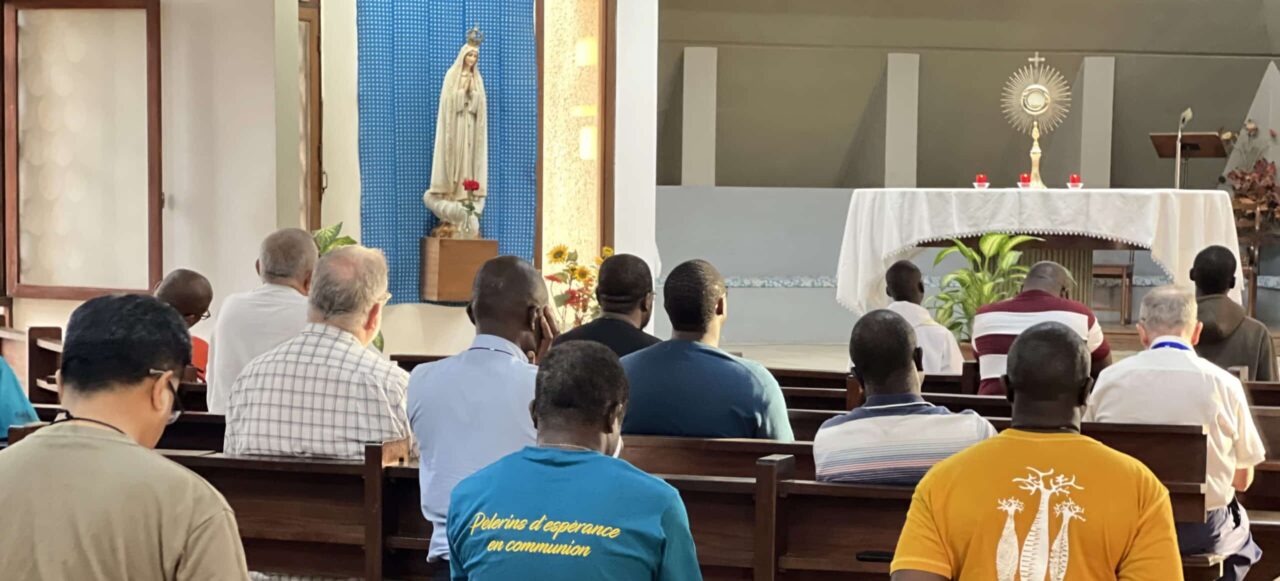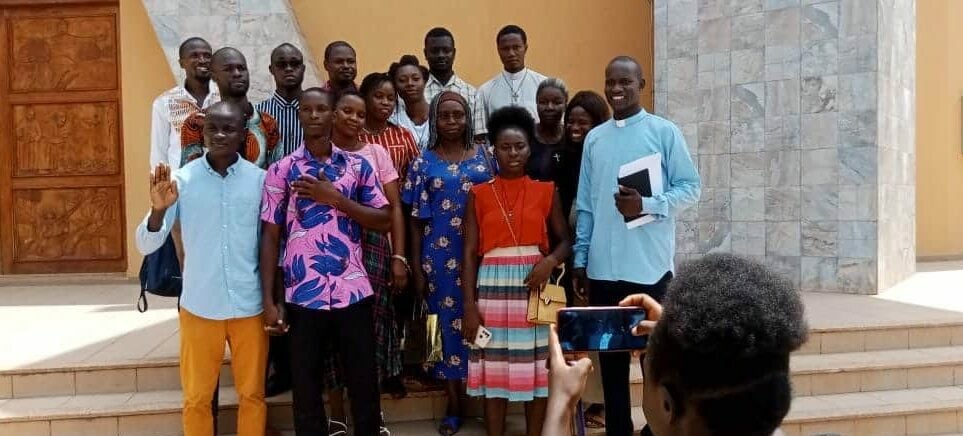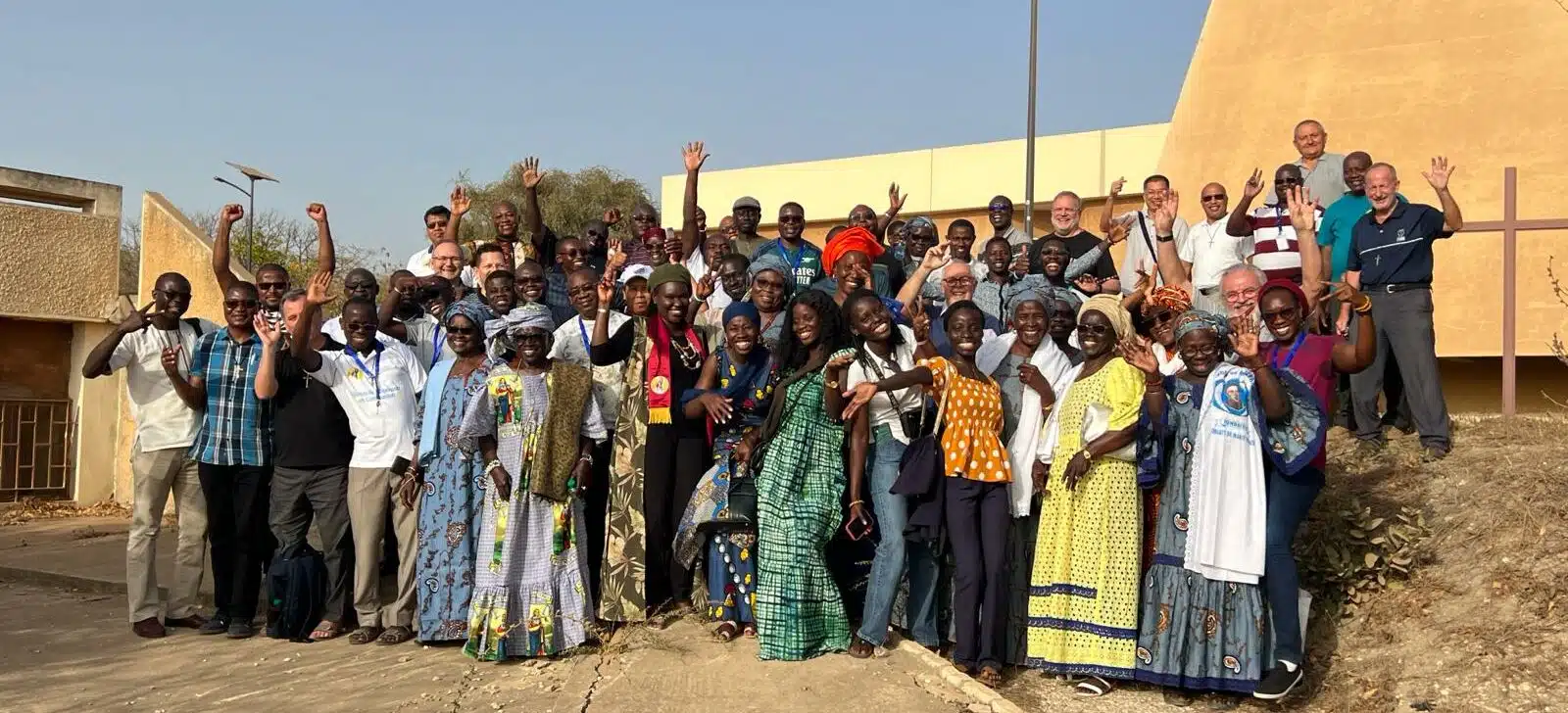Joint Session of the Central Government and the Africa – Madagascar Region
18-23 March 2024
Day 3 – Wednesday, March 20
The Joint Session in Senegal entered its third day with a Mass presided by Fr. Kapena, the General Counselor for Africa-Madagascar, who emphasized the distinction between the ephemeral power of the world and the salvific power of God. The liturgy served as a reminder of God’s unfailing support for those who seek Him in times of need.
The first topic of the day was discussions on restructuring. Fr. Constant underscored that true community life transcends mere coexistence; it’s about fostering familial bonds, solidarity, and mutual support. The call to restructure is meant to transform communities into spaces of communion and fraternity, enriched by diversity and interculturality. Through group discussions, the consensus was that restructuring should be a bottom-up reorganization, from individual units to the general house, aimed at revitalizing every aspect of community life to bolster peace and missionary zeal.
The dialogue then transitioned to discussing first and ongoing formation in the Africa-Madagascar region. Fr. Sidney, the provincial of Lesotho, outlined the significant challenges the region faces, such as communication barriers and logistics like language and visas. He stressed the necessity of contextual formation that mirrors the African experience, highlighting its critical role in nurturing effective and empathetic leaders.
Fr. Thomas from the Cameroon Province brought the protection of minors and vulnerable adults to the forefront. A stark revelation of the absence of protective measures in numerous Oblate facilities across the region prompted a call to action. A proposed three-year plan aims to implement thorough policies and training to safeguard these at-risk groups, emphasizing the Church’s commitment to their safety.
Brother Silvio, the Superior of the Sahara Mission, enriched the session with personal insights, reflecting on the indispensable role and presence of brothers in the Africa-Madagascar Region. He first read Constitutions 1 and 7, which speak of brothers as full members of the Missionary Oblates of Mary Immaculate. In Africa and Madagascar, we are 43, so there is a good presence of brothers in the region. He traced a bit of his vocation’s history and journey as an Oblate missionary.
In summary, the third day was marked by moments of prayer, animated discussions of community and missionary life in the region, and the urgent need for restructuring, formation initiatives, and safeguarding policies.


